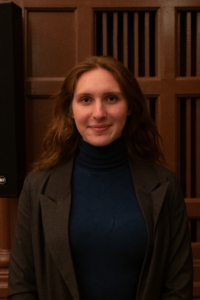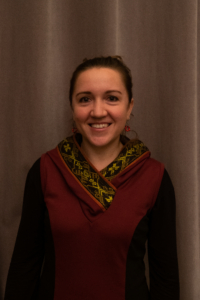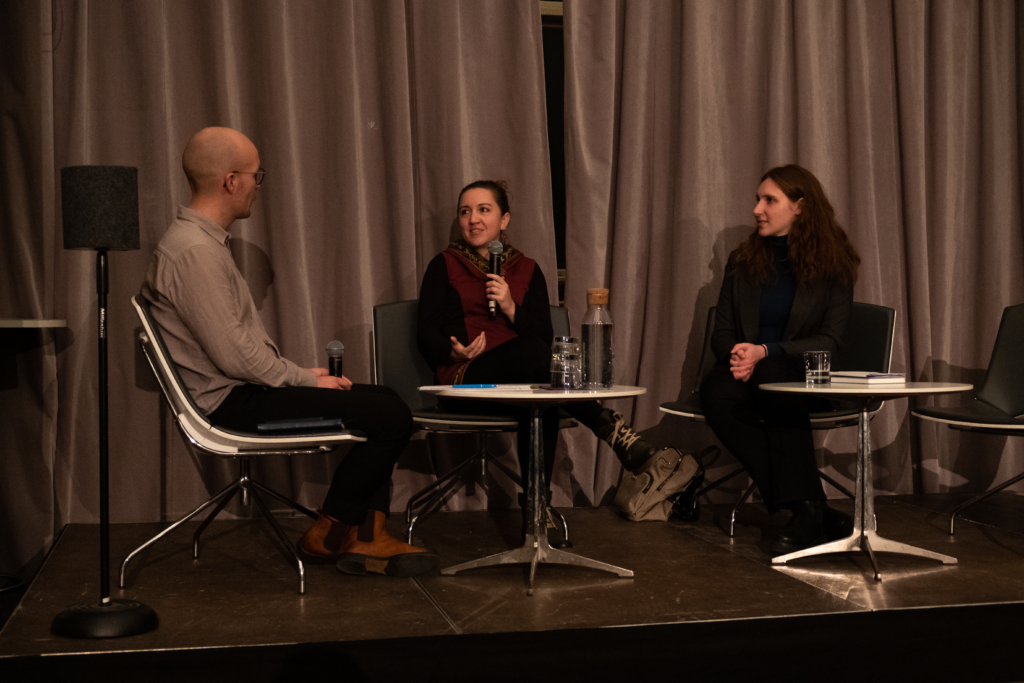Sustainability Forum arranged a panelist discussion with researchers who attended the annual climate meeting. This year the president of the COP, Alok Sharma, specifically declared the meeting in Glasgow to be the “most inclusive COP ever”, but was it? Lundagårds’ Rebecca Forsberg attended the panel discussion to find out.
The dimmed lightning in Lilla Salen, at AF borgen, accompanied by the chit chat from students, sets a cosy, late November atmosphere in the room. Even so, the pandemic makes itself reminded, as one of the invited panelist members, PhD student Billy Jones, could not participate due to sickness.
The pandemic is one of the subjects covered during the hour-long discussion by the panelists Natalia Rubiano Rivadeneira and Micol Zubrickaite, PhD and bachelor students at Lund University Centre for Sustainability Studies (LUCSUS). The discussion was moderated by Ludwig Bengtsson Sonesson, youth-representative at last year’s COP and LUCSUS-student.

Photo: Felicia Pasanen
Micol Zubrickaite attended the pre-COP meeting in Milan in September where youth-representatives composed a statement that was presented at the Glasgow meeting in October. Whilst Micol Zubrickaite applauded the organizers for including the youth, she also felt like that did not bridge the gap between them.
– Finally we had the possibility to have a good discussion with politicians, but the activists did not want to collaborate, just say how bad they [the politicians] are. It is important to complain, but you have to know when you can complain, to have a good discussion, she says.
On the question of what inclusivity is and why it is important in climate decisions, both Natalia Rubiano Rivadeneira, who attended COP26, and Micol Zubrickaite agree that it means giving access and allowing participation of all different groups in society.
Climate change, Micol Zubrickaite says, is a global issue affecting everyone and a single country is not representative of all global aspects. Representatives from many island nations showed up, but less so for indigenous people, who, says Natalia Rubiano Rivadeneira, are to some extent most affected by the climate changes. The reasons for the low show-up from these groups is likely a combination of language barriers and the sign up for COP being done digitally.
– They [the organizers] said that the media access had increased by 200%, but that doesn’t really tell much, since there wasn’t much media coverage before at all, Natalia Rubiano Rivadeneira fills in.

Photo: Felicia Pasanen
Additionally, not everyone could attend the meeting, either for their country being in lock down, or because they had not had the possibility to get vaccinated for covid-19 yet, an inclusivity question that affects but also expands beyond COP26.
Was COP26 inclusive then?
Both Micol Zubrickaite and Natalia Rubiano Rivadeneira believed so, but stressed that thinking and planning in an inclusive way is still fairly new and attention to details can get lost.
– For instance, the minister for energy from Israel who is in a wheelchair could not get up on stage, because no one had thought of that, Micol Zubrickaite explains, and summarizes the discussion with the words:
– The more diverse – the better. We can do more with more people.
In an earlier version of the article, the nationality of the minister for energy was faulty stated. This has been corrected.









